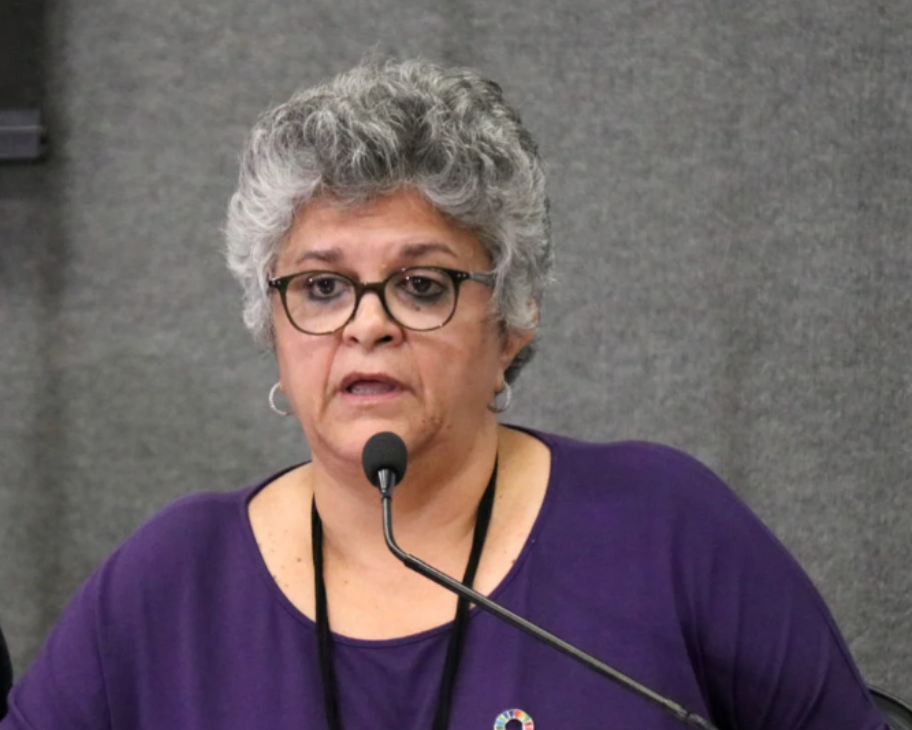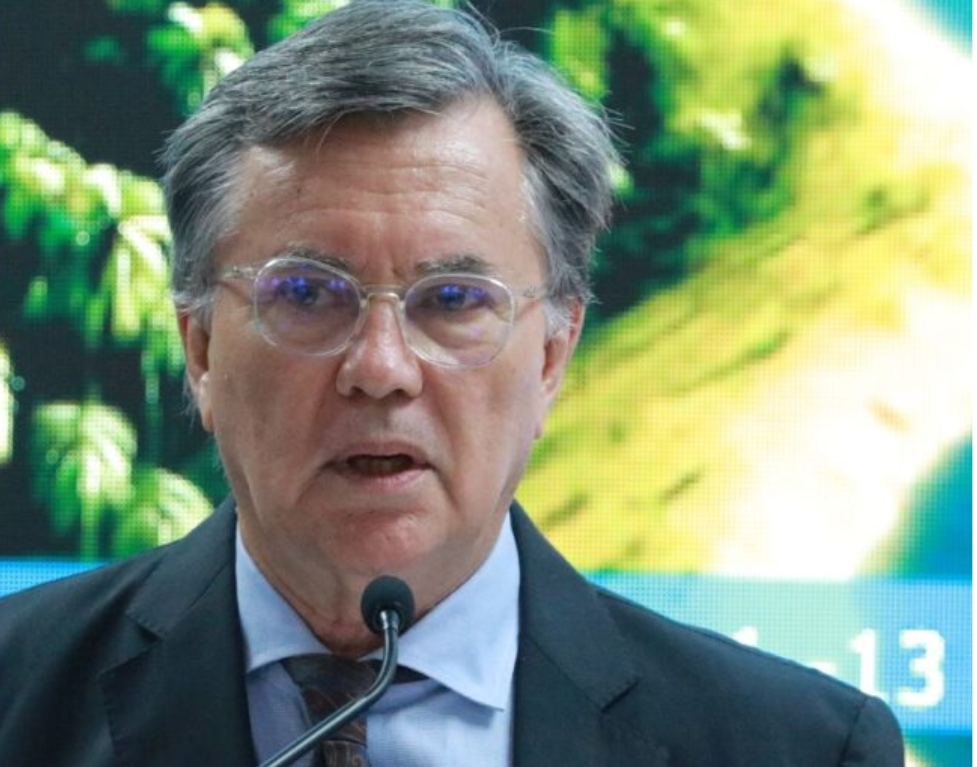At the meeting, held virtually, it was emphasized that the American continent is a key player in global food security and environmental sustainability.

San José, 16 April 2024 (IICA) – The agriculture sector in the Americas must exhibit and make visible to the world its role as a source of solutions to climate change, based on its capacity for soil carbon sequestration. It must also intensify efforts to showcase its decisive contributions to social peace, food and nutritional security and the development of national science, technology and innovation systems.
These were some of the points of agreement between the members of the Advisory Committee on Communication for Agriculture and Food Security of the Inter-American Institute for Cooperation on Agriculture (IICA), made up of opinion leaders who have significantly contributed to the agri-food sector and experts in public and institutional communication.
The Committee held its first meeting of 2024, which was headed by the Director General of IICA, Manuel Otero, and his Special Advisor for the G20 and COPs 29 and 30, the former Minister of the Environment of Brazil, Izabella Teixeira.
At the meeting, held virtually, it was emphasized that the American continent is not only a key player in global food security and environmental sustainability, but that it also has a lot to contribute in terms of energy security, thanks to the bioenergy potential provided by its rural areas. This must play a central role in any communication strategy aimed at strengthening the agriculture sector and fostering rural retention.
The participants highlighted the key role that agriculture plays in the countries’ strategies to reduce their greenhouse gas emissions, thus contributing to climate change mitigation. This is due to the economic and social importance of the sector and the region’s wealth of natural resources.
This was the first meeting held with the new format of the Committee, which now includes the participation of the private sector to consolidate the relevance of agriculture and rurality and enhance IICA’s message about the strategic importance of agriculture and rural life.
The group was created in 2020, at the peak of the Covid-19 pandemic, with the goal of valuing the work of agricultural chains and having a positive influence to increase their public recognition.
After the pandemic, the Director General of IICA considered it relevant to redirect the Committee’s mandate towards the promotion and dissemination of successful experiences and to showcase the various efforts of the countries of the Americas to ensure a sustainable, productive and inclusive agriculture, especially among non-specialized audiences, with a strong link to science, technology and innovation. These elements are all essential requirements to combat climate change, contribute to sustainable development, bring prosperity to rural areas and effectively fight poverty.
The Committee was initially made up of 10 members from seven countries, but was recently expanded and today has more than 20 members representing a wide variety of countries and roles in communication.
Its members are: Héctor Huego, Editor of the Rural supplement, Clarín newspaper (Argentina); Cristian Mira, Editor of the agricultural supplement of La Nación (Argentina); Julio Cargnino, President of Canal Rural (Brazil); Mauro Zafalon, specialized columnist for Folha de S.Paulo (Brazil); Patricia Vildósola, Editor of the agricultural supplement of El Mercurio newspaper (Chile); Juan Carlos Domínguez, columnist for El Tiempo de Bogotá (Colombia) and specialist in institutional communication; Juan Samuelle, Editor of El Observador (Uruguay); Cecilia Martiren, Manager of Institutional Relations and CSR of Biogenesis Bagó (Argentina); Claudia Palacios, Host and Editor of the CM& Canal 1 Newscast (Colombia); Douglas Marín, Correspondent of the EFE Agency (Costa Rica); Ederson Granetto, Head of Agro+ TV, (Brazil); Gabino Rebagliatti, Director of Community Affairs, Bioceres (Argentina); Gabriel Estrela, Journalist at Agro+ TV (Brazil); Gustavo Ripoll, Corporate Manager of Communications, Institutional Relations and Sustainability, Grupo Insud (Argentina); Hugo Castellano, Communications Consultant (Mexico); Julian Rogers, Communications Consultant (Caribbean Region); Laura Cristóbal, General Director of EFE Agro (Spain); Mauricio Bártoli, Director TN Campo/Clarín (Argentina); Mónica Velázquez, Communications Director CropLife Latin America (Colombia); Silvia Naishtat, Editor of Clarín (Argentina); Teresa Montoro, Director and host of Hora América, RTVE (Spain); Navendra Soaj, Editor-in-Chief, Guyana Chronicle; and Daniela Blanco, Editor of Infobae (Argentina).
Communicating the future
Three main topics were discussed at the meeting: agriculture on the agenda of the 2024 Presidency of the G20 led by Brazil; the demands made to the agriculture sector by the United Nations Conference of the Parties (COP) on Climate Change; and the need to strengthen the positioning of the agriculture sector, which has been highlighted in the recent COPs for its contributions to mitigation and its strategic role, given that without food and nutritional security there can be no sustainable development.

Izabella Teixeira, who was Brazil’s chief negotiator at COP21, where the historic Paris Agreement was adopted, and through which the world made commitments to reduce greenhouse gas emissions, praised IICA’s role in international forums, as it offers a regional perspective on the role of agriculture in the climate issue and in food and energy security.
“We must find new narratives that tell us about the future of agriculture, not about the past”, said Teixeira, who considered that the public debate on the climate issue should not be led exclusively by environmentalists, but also by actors who have a social and economic perspective of the problem.
She also revealed that within the framework of the presidency held by Brazil this year in the G20, a forum that brings together the largest economies in the world, the South American country will present a relevant document for discussion on sustainable agriculture and its role in the production chain.
“Agriculture–he said–is a key sector to build a common strategic vision of Latin America on the climate issue. We have to position the region as a key player in energy security, hand in hand with clean energies that come from agriculture, such as biogas. We have more opportunities than barriers, but we need political agreements and to understand that we are not competing with each other”.
Otero stressed that the new configuration of the IICA Advisory Committee on Communication aims to increase the representation of the countries, so that it has a hemispheric scope, and to have more participation from the private sector, articulating efforts with the public sector in order to build a new narrative.
“It is not about saying who is right and who is not, but about providing concrete solutions to a crisis-ridden planet in which agriculture plays a key role, and thinking about how to improve the quality of life of our people. We seek to promote a transformed image of agriculture in our continent, as a guarantor of food security and environmental sustainability on the planet. We are the supermarket and the lungs of the world. We have many responsibilities, and I believe we must improve the self-esteem of our region. We have to love our agriculture more”, Otero added.
The Director General of IICA stressed the need to strengthen the communication strategy for COP29, which will be held this year in Azerbaijan, and COP30, which will take place in Brazil in 2025 and will constitute a great opportunity for agriculture in the region to show its role as a solution to climate change.
“We have the ability to send a very solid message, and we must do so with substance and strength. Today our discourse is very fragmented, and that gives way to other sectors telling us what is happening in agriculture. We react when we are told that we are the bad guys in the movie, but we need to build and develop new arguments instead, and go from defensive to offensive”, he concluded.
More information:
Institutional Communication Division.
comunicacion.institucional@iica.int











